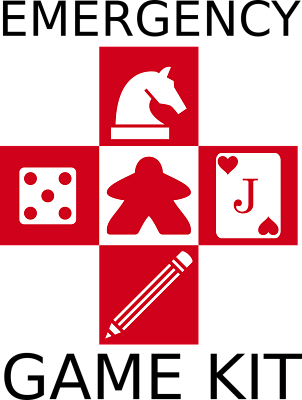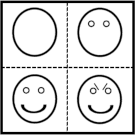Operation Wifebeater: Scrabble for Supremacy, Part I
I've never been able to beat my wife Marty, but I'd love to. At Scrabble! Jesus, what do you take me for?
Marty enjoys playing Scrabble with me, and not just because she always wins. It's one of our Things. I gave her a year's worth of monthly Scrabble games with me for her birthday last year, and I still haven't caught up. That's one reason I decided to make Scrabble one of my 10×10 games this year.
Date/time: 20 January 2019, 15:45-18:15
Location: Home (Kent, WA)
Players: Marty and Ron Hale-Evans
Games played: Scrabble
Game number: 1 of 10 (see ScoreBoard)
Winner: Marty
We draw tiles to see who goes first. I draw 'L'. Marty draws 'A'. I immediately see how this is going to go. Her first word is FLYER, for 30 points. I, on the other hand, am beset throughout the game with either low-scoring words (LEARN, 5 points) or high-scoring opportunities but nowhere to put them (early case in point: ROUX).
Marty is keeping score with her vintage tile rack, which has little pegs and displays numbers in base 20 or something. Her ancient Mayan scoreboard is fun for her, but makes it hard to read, especially upside-down. The accompanying vintage board has ridges that hold the tiles in place, so our game is not disrupted when our presumptuous Pomeranian Humphrey, driven mad by lust for off-brand cheetos, bounds onto the rotating board in mid-game. My concentration, however, is frequently disrupted by my designated role of pom wrangler.
Marty mocks the delicate way I lay down my Scrabble tiles, then tells me she actually enjoys it. (Good, because you're stuck with it.)
Marty bingoes at one point with GOONIER, a word that applies poignantly to the bogus words I am nervously juggling. I waste time and gumption considering NITELIFE and NAILUSE (in conjunction with a hammer, it's what sets us apart from the animals). Halfway, I finally break into a legit triple-digit score with SLUT (double letter score and triple word score for 15 points, woot). I occasionally find myself wishing I were playing Marty at Upwords instead of Scrabble, both for momentary tactical reasons (it would be great to play particular tiles on top of ones that are already there) and because I have actually beat her at that game.
In the end, it's Marty who's the triumphant spousebeater. She scores 373 points to my 201. Marty consoles me by saying I was better at blocking her plays this time. She also recommends I learn my two-letter words and simply play as much as I can. And so I shall! With her!
At least she didn't double my score again. I resolve to score higher next time and make Marty score lower; we'll see how that works out.
![[Home]](http://www.ludism.org/logo/rwhe_border.png)



